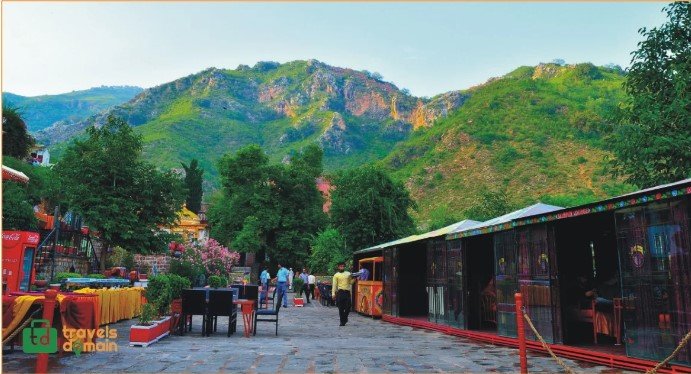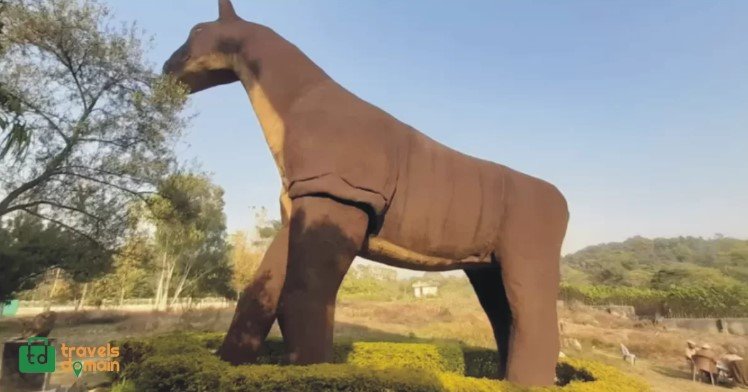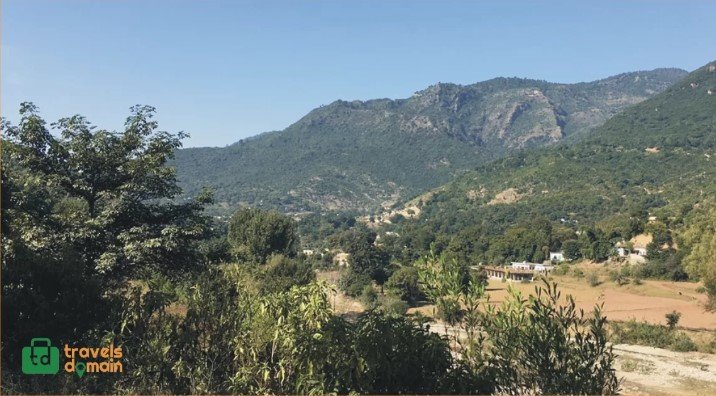What can be seen in a one-day tour of Islamabad?
Nestled in the foothills of the lush mountains, Islamabad is considered one of the most beautiful capitals in the world.
If this is your first visit to this quiet city, you may be wondering what is there to see and what is there to see in a short time.
This question will take you on a one-day tour of Islamabad.
Let’s see what quiet and interesting places are waiting to welcome tourists here.
What can be seen in a one-day tour of Islamabad?
1. Shah Allah Ditta Caves
It should be your first destination at about 9 a.m.: It is located at the foot of the Margalla Hills, a short distance from Sector D12 in Islamabad.
The road to get here is nominal, but not so bad that you would try to get this place off your list.

The high-hanging roots of the banyan trees cover these caves. There are a few caves between the mountains, a garden,
and a natural spring whose water flows down the road.
Introduction to Kasur: City of Bulleh Shah, Methi and Fish
This place is known by both the names Shah Allah Ditta’s Cave and Buddha’s Cave. The question is who was Shahullah
Dutta and what is the history of these caves?
The residents say that in ancient times, these caves were places of worship for Buddhist monks.
While a man named Shah Allah Ditta was the head of this settlement centuries ago, after whom the place was named
Shah Allah Ditta.
These caves are covered by the high-hanging roots of the banyan trees. There are mango trees in the garden, under
the shade of which you can sit cheaply and enjoy tea at a nearby stall, where you will be surrounded by ducks.
2. Suri Era Well
There is an ancient well here which is said to have been built by Sher Shah Suri. For your amusement, a cradle has
been hung from hundreds of years old banyan tree here.

Cradling a cradle not only refreshes childhood memories but also reduces mental stress. A road goes up from the
caves of Shah Allah Ditta where the higher you go, the more beautiful views of the valley and Islamabad City will
be in front of you.
After a place here, the Haripur division of Khyber Pakhtunkhwa begins. The whole area was an ancient
highway connecting Afghanistan and India.
There is an ancient well that was built by Sher Shah Suri according to local residents. Sit down on the steps of this
well for a while and imagine yourself in the Middle Ages.
3. Margalla Hills National Park
It should be your Second destination at about 11 a.m. About 25 minutes from Shahullah Dutta, there are hiking
trails in the Margalla hills called trails.

There are a total of six trails, of which Trail Three and Trail Five are the most recognizable. To complete Trail 3,
you must be an old mountaineer, otherwise, climbing can be difficult for beginners.
But if you complete Trail Three, you will reach the famous restaurants located on the tops of these mountains.
But if you don’t want to walk for two and a half hours, take Trail Five like us, which is relatively easy but just as attractive.
Be sure to keep a bottle of water with you when you come here as you will feel thirsty while hiking.
What can be seen in a one-day tour of Islamabad?
If you are coming here in September and October or the rainy season, countless springs will be waiting for you to melt
the juice in your ears and quench your thirst.
The rest of the springs are dry at the moment due to the lack of a rainy season but we were lucky to find a
spring flowing here today.
Bring home mild and unleavened bread, fruit licks, or whatever you like, and sit here by a fountain and enjoy
the natural music and simple food. Believe me, this taste will not be found in any of the most expensive hotels.
Just take leftover food and garbage with you instead of leaving it here.
If you don’t want to walk too much on the trails of Margalla, there are wooden benches and rocks here and there
on which you can relax. Get rid of mental fatigue and enjoy the chirping of birds that are now rarely heard in city noise.
And when you get off the trail, don’t forget to eat jaggery tea and fritters from the parking lot next to the parking lot.
Pakistan Museum of Natural History

It should be your Second destination at about 1 p.m.
If you are one of those people who, like me, always have fish with the word whale on your tongue,
then you must visit this museum.
Because with the blue whale structure here, it is written that the whale is not a fish but a mammal like a human.
At the door, you are greeted by a blue whale structure that is also present inside.
If you enter here with a ticket of only 30 rupees, after a few rooms you will reach a room where you will encounter
the structures of an elephant and a giraffe.
There are also different types of bones and skulls on different shelves during different stages of human evolution.
Due to his keen interest in evolutionary biology, seeing these ancient fossils in front of him was an enchanting experience.
These fossils are kept in order, and behind their shelves are pictures of the changes that have taken place in human
society over time. These images give language to these bones as if in the form of a pictorial story.
On the second floor of the museum is a dinosaur gallery in which you can see the largest dinosaur, the T-Rex,
standing in front of you in the famous movie Jurassic Park.
When you look at them, if you imagine the time millions of years ago, then you get scared.
In the same gallery are sculptures of different species of birds and their eggs, while a chart hanging on a wall
shows through evolutionary sketches how all the birds in the world today are a kind of dinosaur. Are
A whale shark found off the coast of Sindh Province, Pakistan, is on display in the Fish Gallery on the third floor.
The whale shark is the largest fish in the world and the fish in this museum is 40 feet long and weighed 16 tons at
the time of capture and has been preserved with the help of the United Nations.
As you walk out of the museum, another wonderful garden awaits you. This is a giant statue of an animal called Balochi
Therium, which was an extinct species of rhinoceros.
Its fossils were discovered in 1908 in the Dera Bugti area of Balochistan province, hence the name Baloch Therium.
It was one of the largest mammals on our planet.
Standing in his footsteps, you suddenly feel like a dwarf. The whole museum is undoubtedly a box of historical treasures.
Surrounded by the Folk Heritage Museum and the Pakistan Monument are also worth visiting.
Shahdara Valley
It should be your fourth destination at about 3 p.m.
Shahdara is located just outside the Quaid-e-Azam University, just outside the city of Islamabad.

The road is a bit rough when you turn inwards from the main road to get here, but you can still get here after
about a 45-minute drive from Islamabad.
There is a valley between the beautiful and lush mountains where you are greeted by cold and freshwater springs.
The special thing about this place is that if you want to have something to eat here, the restaurant and stall owners
have placed their tables, chairs, and cots in the middle of the flowing springs which doubles the taste of refreshments.
Before during, or after refreshments, enjoy the duck games that gather around you by placing your feet in a fountain,
and in the meanwhile, pay attention to the music playing at a distant hotel.
At Shahdara, you can walk as far as you want in the mountains but most people come here only because of the
flowing springs which continue almost all the year-round.
Since the sun sets early these days due to winter, we also quickly ordered tea, fritters, and chips which ended our short
but a fun-filled tour of Islamabad’s resorts.

